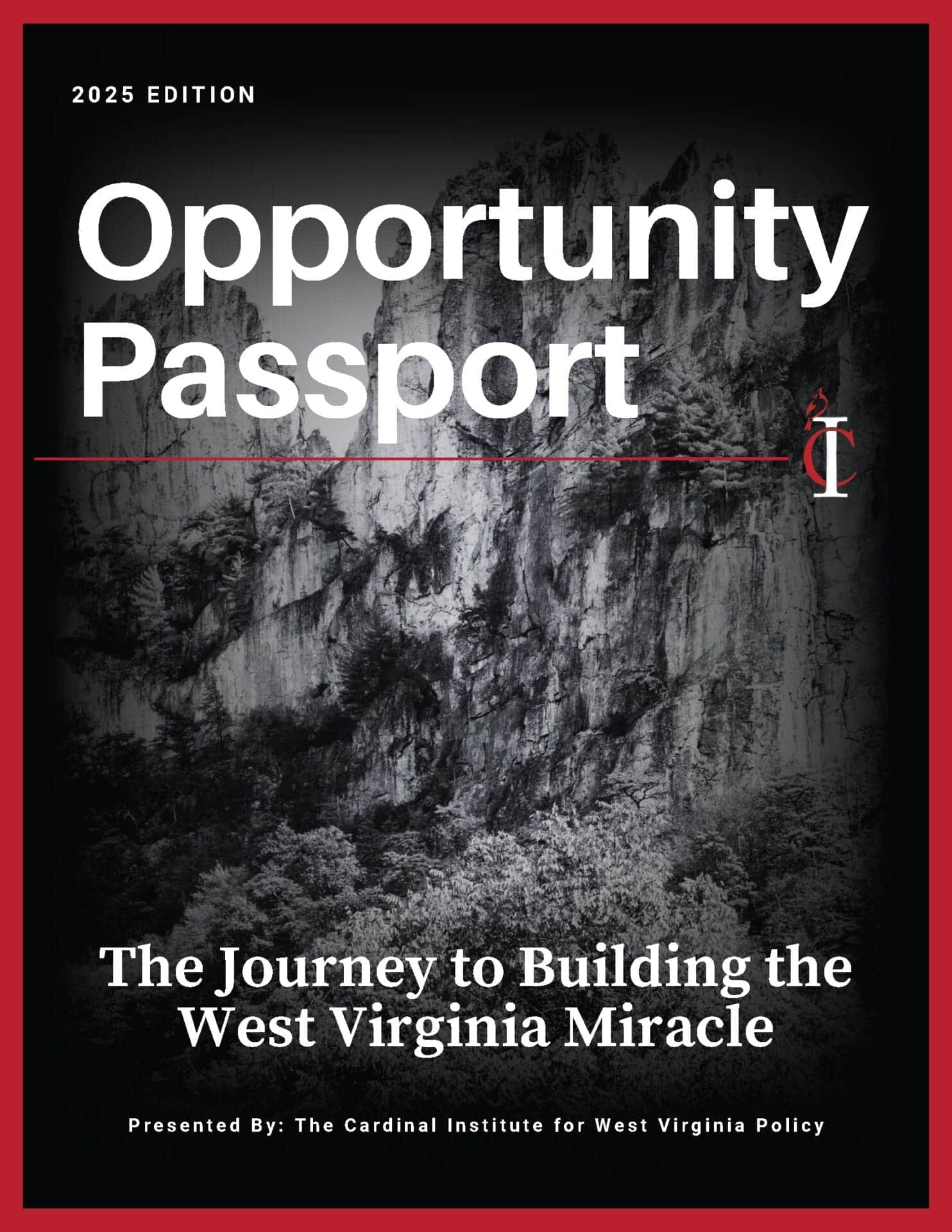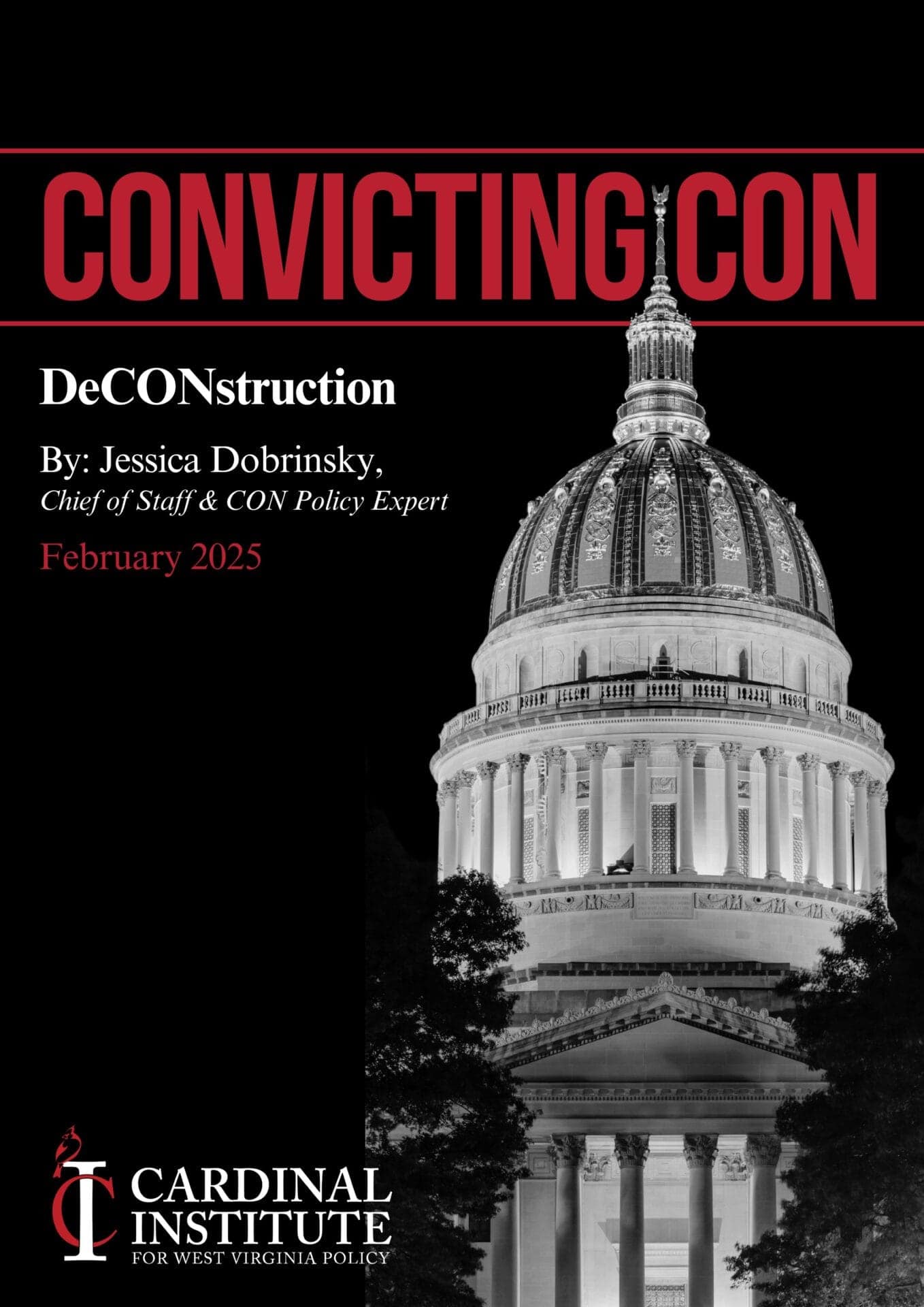
2024 Policy Priorities
Cardinal’s Policy Priorities for the 2024 Legislative Session
An annual tradition, the Cardinal Institute released its main policy priorities ahead of West Virginia’s 2024 legislative session. This year, session runs from January 10 through March 9.
These priorities represent the main policy reforms that the Cardinal Institute believes will best serve West Virginia’s 1.79 million residents and future generations. Without further ado, here are three main areas:
- Reform occupational licensing requirements
- Eliminate certificate of need
- Expand and protect education freedom
These priorities represent a continuation of Cardinal’s long-standing belief that the enlargement of freedom is paramount to West Virginia’s success as a state. We sorely need freedom in the spaces where individuals educate their kids, pursue a career, and access critical health care services. Fortunately, many of these priorities have seen substantial progress in the last few years. Though all could be better.
How Cardinal Chooses Policy Priorities
Before we dive in on each reform, it is worthwhile to discuss the way in which these policies are picked as priorities. Though unscientific, there are considerations given to the following aspects of reform: 1) impact of the reform; 2) likelihood of the reform; 3) resources required to increase likelihood of reform; and 4) Cardinal’s in-house expertise or access to expertise on a given reform. There is no formal decision matrix that is used, but the reforms are generally agreed-upon and presented as a result of internal and external deliberations with employees, partners, stakeholders, experts, and others.
To illustrate the matrix a bit more, the impact of a full repeal of West Virginia’s income tax would be huge and headline-inducing across the country, however, the likelihood of that happening this year is extremely small for a few reasons. Further, the resources required to increase the chances of a full income tax repeal in 2024 would be massive and thus not feasible or pragmatic for the Cardinal Institute to fully pursue. In a similar vein, making West Virginia’s policy environment the friendliest in the world for nuclear power generation would be a wonderful thing, but Cardinal’s in-house expertise is asymptotically approaching zero, and our access to such expertise is not much better in the short-term.
It is important to note that these priorities are not necessarily set in stone. Legislative priorities may change along with the political environment each year and/or session, but these are Cardinal’s highest priorities in the current climate.
Let’s briefly discuss each priority.
Occupational Licensing Reform
Cardinal continues to advocate for “universal recognition” in occupational licensing laws. Many occupations are subject to a permission slip from government before a given individual can legally work in said occupation. This includes occupations as varied as crane operators and barbers and paramedics and sanitarians. Universal recognition would allow anyone with an active license in good standing from another state to work in West Virginia without going through the training, tests, and fees required by the state. West Virginia has some limited reforms in this area over the last couple of years. But the reforms have not gone far enough.
Certificate of Need Repeal
Certificate of need (CON) laws are a particularly archaic, centralized form of government planning. This is especially true in the health care space where they empower the bureaucracy to allow, or forbid, the expansion of critical health care services. These laws often require government permission for things like an MRI machine, additional beds, ambulatory surgical centers, sleep centers, and on down the line. West Virginia has a particularly burdensome CON regime vis a vis many other states. CON laws are particularly pernicious. They allow competitors to dispute whether a given area needs a new health care service. In other words, CON is a “competitor’s veto.” While limited CON reforms occurred in 2023, Cardinal believes they have not gone nearly far enough. A full repeal of all CON laws is not only necessary but imperative.
Expand & Defend Education Freedom
Finally, expand and protect education freedom in West Virginia. West Virginia zoomed to the front of the national line in its expansion of education freedom since 2019. However, there are other reforms we need to make. For example, West Virginia should capitalize on recent open enrollment expansions by mandating transparency and reporting for those enrollment policies. The state should publish the number of kids transferring and the number of applications submitted and approved/denied. They should also include the reasons for those decisions. Districts should report open capacity, number of seats available, etc.
There are many other intricacies and policies within each priority area. But in the interest of brevity, we will end things here.
Let’s see what 2024 brings West Virginia in its fight to become the “Opportunity State.”
Garrett Ballengee is the President & CEO of the Cardinal Institute for WV Policy.








